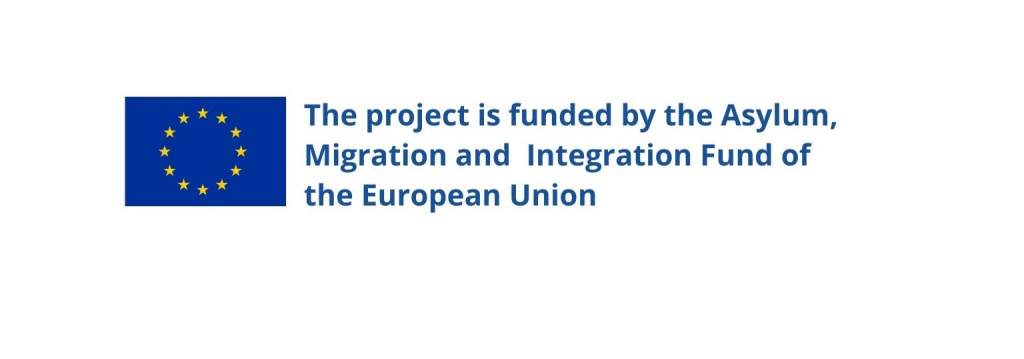 Share this!
Share this!Labour participation is an essential building block for inclusion. It has a direct impact on access to housing, wellbeing and the ability of individuals to contribute.
A Holistic Approach to Labour Market Inclusion
The Includ-EU workshop “Inclusion, Creativity and Human Potential” on 14-15 June 2022 in Venice, highlighted regional policies and practices, that support stakeholders to build on their ideas, motivation, competences and experiences.
Speakers included:
- Rossella Celmi, IOM Coordination Office for the Mediterranean, Lead Partner of the Includ-EU project
- Gloria Bondi, The Human Safety Net
- Angelique Petrits, DG HOME
- Rabab Ahmad, IOM’s Regional Office for the EEA, the European Union and NATO
- Alan Barbieri, The Human Safety Net
- Mónica Oltra Jarque, Vice President of and Minister for Equality and Inclusive Policies of Generalitat Valenciana, Member of Intercultural Regions Network
- Helena Castellà Duran, Adviser to the Minister of Equality and Feminism’ office, Catalonia
- Stefano Rovelli, The Human Safety Net
- Mays Kabouch, Coordination Entrepreneuriat IDF, Singa
- Federico Mento, Director, Ashoka Italy
They shared how they are working to improve access to labour market -or accessed the labour market- the collaborations they implement, and how they learn from their peers to improve practices.
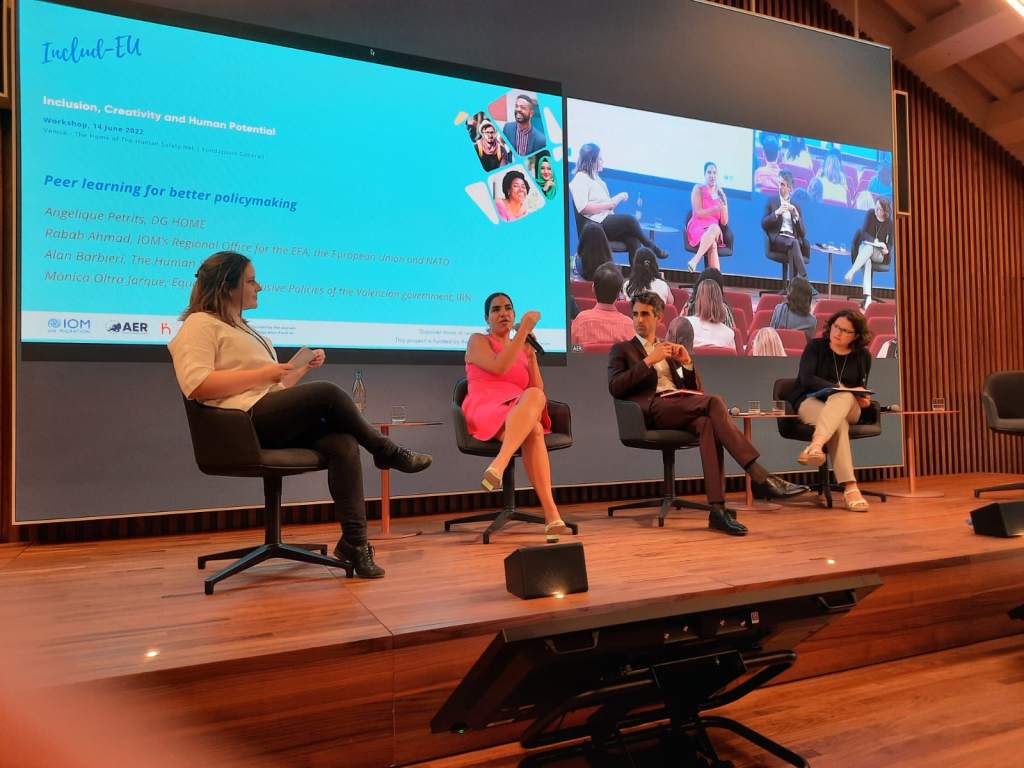
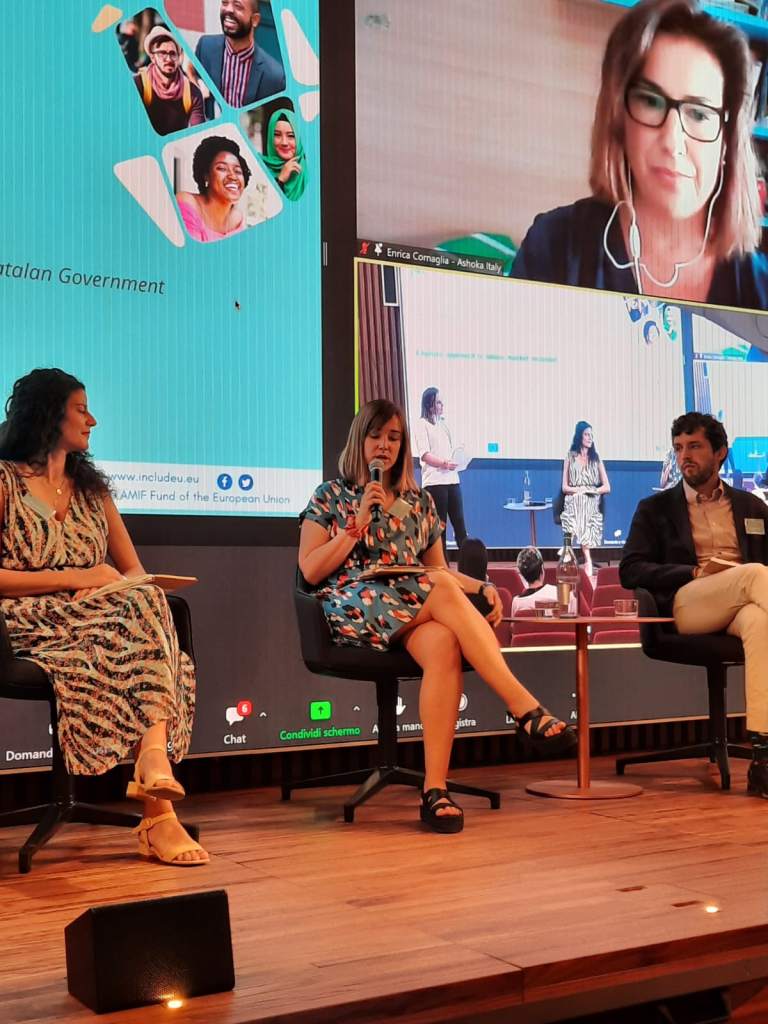

For the European Union, improving access to the labour market for all has deep implications both for the economy and for social cohesion. The challenge of integration and inclusion is particularly relevant for migrants, not only newcomers but sometimes also for EU citizens with a migrant background.
The EU Action Plan on Integration and Inclusion 2021-2027 states that
Ensuring effective integration and inclusion in the EU of migrants is a social and economic investment that makes European societies more cohesive, resilient and prosperous.
Action Plan on Integration and Inclusion 2021-2027, COM(2020) 758 final
This workshop therefore specifically focused on the benefits of peer learning for better policies and practices. It actually created a space where meaningful exchanges between peers would occur. At a time when everything is available online, it was important to design an experience that would nurture the network and encourage further collaborations.
Tapping Into Human Potential
In the afternoon, the interactive exhibition at the Home of the Human Safety Net provided participants with an opportunity to explore different dimensions of human potential and their own character strengths: Creativity, Perseverance, Leadership, Team spirit, Hope, Curiosity.
These character strengths were also highlighted in the exchanges with Yousaf Marufkhel, Mohammad Hossaini and Ali Rezai from the Orient Experience, an ethnic catering company founded in 2012 by political refugees and asylum seekers in the city of Venice.
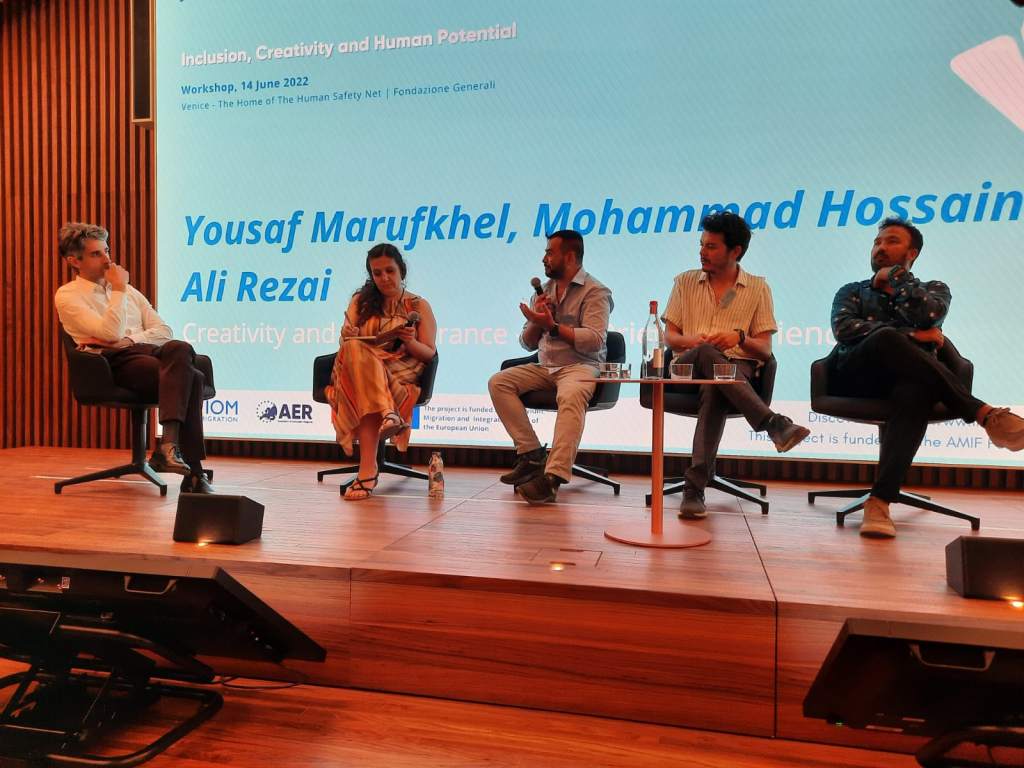
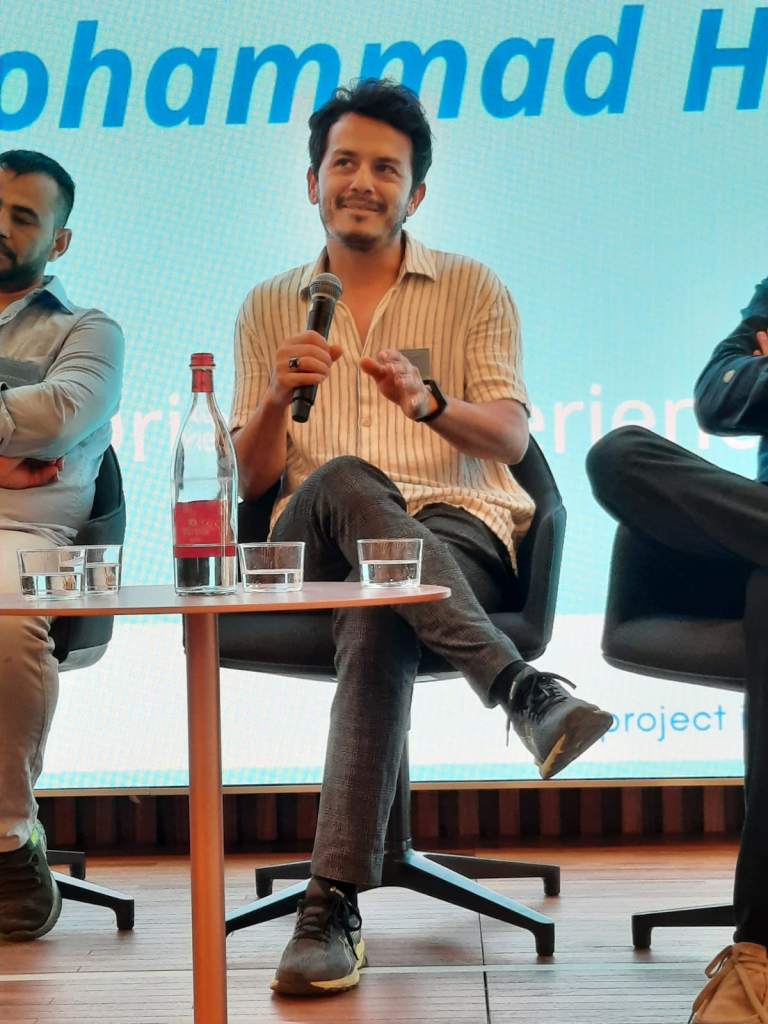
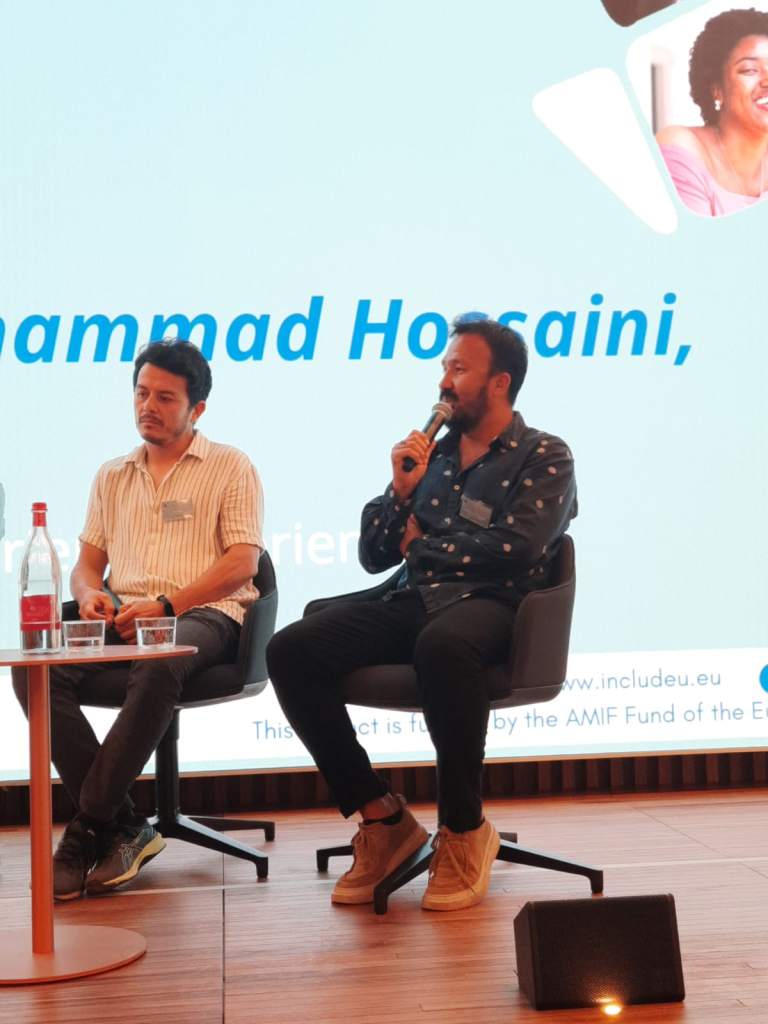
It was born from the idea of making the experience and memory of the migrants’ journey (from Africa and the Middle East to Venice) meaningful through the proposal of a “menu” of dishes that retrace that itinerary.
The Migrant As An Innovator
In fact, the dishes are the result of the migrant’s encounters with other cultures and a personal reinterpretation and adaptation to the place where they are proposed. The Orient Experience makes it possible to transmit new knowledge and live a new sensorial and relational experience, through the conviviality offered by the food, the care of the place of refreshment where this otherness is breathed in.
The Orient Experience highlights the potential offered by the encounter between different cultures, and diversity as a source of innovation and education. It is a testimony of the figure of the migrant as an innovator.
Attendees had dinner at the Orient Experience to actually live the concept.
Collective Intelligence To Improve Practices
On the second day, participants were invited to work in small groups using the co-development methodology developed by Adrien Payette and Claude Champagne. This professional development approach focuses on the group & the interactions between participants to promote understanding and better practices. Co-development has two general objectives:
- improving a professional practice
- learn how to solve complex problems.

Co-construction, collaboration, sharing, individual and collective reflection are at the center of this approach, based on the idea that it is possible to “learn on your practice, by listening and helping colleagues to progress in understanding and improving their own practice”.
This session was the first of a series of sessions to be facilitated in upcoming events of the project. The 6-step co-development methodology helped participants to take advantage of the presence of their peers to unlock challenges and seize opportunities in a very concrete way.
Strategic Partnerships For Integration
The afternoon session started with a plenary moment, which includes the presentation of:
- the Italian Ministry of Labour and Social Policies on their multi-annual integrated programmatic document for work, integration and inclusion 2021-2027;
- the Fondazione Leone Moressa, a private research institute dedicated to the study of the economics of immigration who will focus on the economic added value of migration.
This Includ-EU workshop was hosted at the premises of the Human Safety Net, a foundation created by Generali, which brings together non-profit organisations and the private sector in Europe, Asia and South America. It was therefore quite natural to look at strategic partnerships to tap into expertise, networks and resources outside government.
The two roundtables gathered the following representatives:
- Simona Torre, Fondazione Italiana Accenture
- Kenny Clewett, Ashoka – Hello Europe
- Paola Cavanna and Dina Ulinici, IM Italy – Alt Caporalato
- Massimiliano Giacomello, Consorzio Comunità Brianza –
Hope Fund and the Bonvena Network - Carlo Massini, Hogan Lovells
- Alice Dalfovo and Stefano Buzzati, Diagrammi Nord – Una casa per l’uomo
- Anna Filippucci, MicroLab
- Gianfranco Della Valle, Region of Veneto – Navigare
Exchanges showed the importance of getting opportunities to discuss shared objectives, ways to facilitate the work of NGOs, as well as the challenges related to different standpoints and perspectives.
Additional Resources
Here are some more resources from the Includ-EU project and findings:
- More on labour inclusion in Includ-EU countries: https://includeu.eu/labour-inclusion/
- Includ-EU Thematic Briefing on Education: https://includeu.eu/second-includ-eus-briefing-education/
- Includ-EU Thematic Briefing on Housing: https://includeu.eu/first-includ-eus-briefing-housing/
Avoid FOMO: Follow Us!
If you haven’t yet subscribed to the Includ-EU Newsletter, this is the place to be.
To get regular news about the project, the pilots, resources and upcoming events: follow Includ EU on Twitter @Includ_EU
